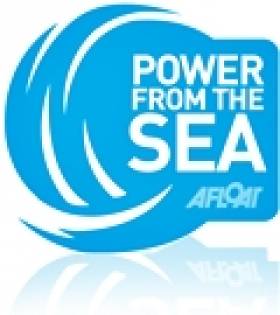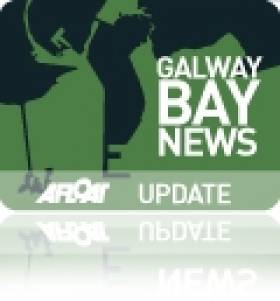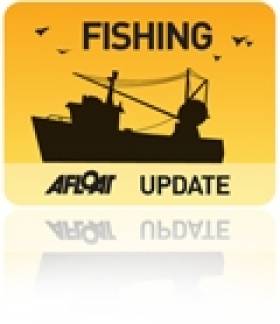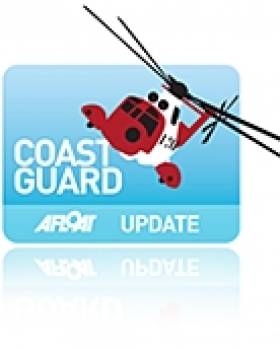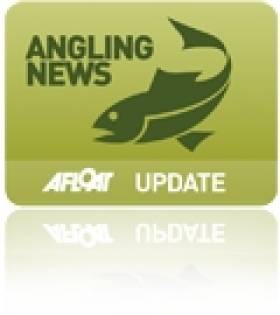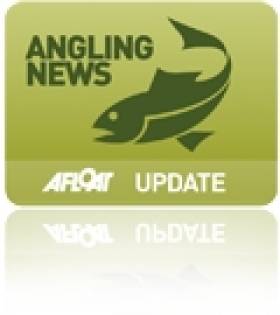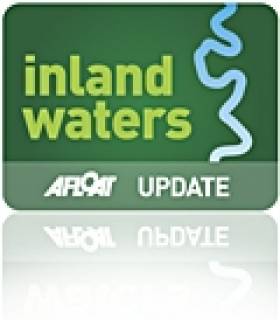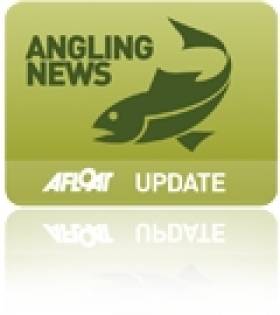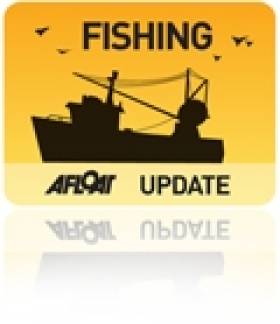Displaying items by tag: Pat Rabbitte
New Marine Energy Lab for Cork Harbour
#POWER FROM THE SEA - A new marine research lab in Cork Harbour could help Ireland to be a global leader in renewable energy, the Irish Examiner reports.
The Beaufort Laboratory, being built on a three-acre site next to the National Maritime College of Ireland on Haulbowline Island, is set to be completed by 2016.
And scientists at the €14 million lab have told Minister for Energy Pat Rabbitte that it will be the largest marine renewable energy research facility in the world.
Expected to be a base for 135 researchers from University College Cork (UCC), the lab also hopes to attract the world's top researchers in marine energy to the area, with an aim to exploiting the potential for jobs in the fast-growing ocean energy sector.
The new lab forms part of the Irish Maritime and Energy Resource Cluster (IMERC) established to promote the country as a world-renowned research and development location, as previously reported on Afloat.ie.
The Irish Examiner has more on the story HERE.
Management Plan for Galway Bay Fisheries On Track
#GALWAY BAY - Galway Bay FM reports that the National Parks and Wildlife Service is to work with the Marine Institute towards completing a management plan for Galway Bay.
It comes two weeks after a group of oyster fishermen met Minister for Natural Resources Pat Rabbitte at Leinster House to voice their concerns over a cap on oyster dredging licences.
As previously reported on Afloat.ie, local fishermen in the inner Galway Bay-Clarinbridge area are concerned that their livelihoods are at risk after the European Union ruled that there is over-intensification of fishing at the oyster bed.
Only 13 dredging licences have been issued this year, and EU Directives prevent their further issue until a fisheries management plan is introduced.
Galway West Senator Fidelma Healy-Eames says steps are being made to get the management plan on track.
Galway Oystermen Meet Minister Over Licence Cap
#FISHING - Fishermen from Galway met Minister for Natural Resources Pat Rabbitte at Leinster House yesterday to voice their concerns over a cap on oyster dredging licences, Galway Bay FM reports.
Local fishermen in the inner Galway Bay-Clarinbridge area are concerned that their livelihoods are at risk after the European Union ruled that there is over-intensification of fishing at the oyster bed.
Only 13 dredging licences have been issued this year, and EU Directives prevent their further issue until a fisheries management plan is introduced.
#COASTGUARD - The Irish Coast Guard is among the services that can be contacted through a new emergency text scheme for the deaf, hard of hearing and speech impaired, The Irish Times reports.
A pilot for the new www.112.ie service was launched by Minister for Communications Pat Rabbitte yesterday. It enables users who are unable to communicate verbally to send text messages to the Emergency Call Answering Service.
The scheme will run till the end of June, operated by BT Ireland, and will in the words of the minister take "a step closer towards parity of access for all to the emergency services".
Users are required to register online before using the service. They can then send texts to 112 specifying the service needed (whether gardaí, fire brigade, ambulance or coastguard), the problem encountered, the county they are in and their exact location.
The programme has been welcomed by the Irish Deaf Society, which says it finally puts deaf people "on an equal par".
The Irish Times has more on the story HERE.
Salmon Conservation Scheme Extended to 2012
#ANGLING - Inland Fisheries Ireland's Salmon Conservation Scheme has been extended into 2012, with funding increased to a total of €200,000.
The pilot scheme will facilitate the rehabilitation of salmon stocks, giving priority to rivers below their conservation limit which have the greatest prospect of recovery.
Applications are now being invited for salmon conservation projects, to a maximum value of €10,000 per project. Applicants must outline the benefits of the project, the ability to plan and complete the project, and value for money. Any statutory approvals necessary, such as planning permission, must be in place.
Examples of schemes that can be funded include: fish passage improvement; spawning enhancement, instream structures such as weirs and deflectors; river bank protection; tree pruning and planting; and removal of invasive species.
Minister for Communiations, Energy and Natural Resources, Pat Rabbitte, commented: "This scheme has been proven to enhance habitat, knowledge and ultimately the wonderful angling and commercial fisheries we enjoy in Ireland adding benefit to local economies."
Application forms are available from the Inland Fisheries Ireland website HERE.
The closing date for applications is 31 March 2012.
IFI Launches 2012 Sponsorship Programme
#ANGLING - Inland Fisheries Ireland (IFI) has announced the launch of its 2012 Sponsorship Programme.
The IFI Sponsorship Programme aims to increase awareness of IFI and its work, recreational angling, the sustainable commercial use of the inland fisheries resource and habitat issues.
Applications are invited from organisers and event promoters that will support the aims of the IFI sponsorship programme.
Events would be supported on the basis of: the location and nature of the event; the potential of the event to introduce new users to angling in an active capacity (ie not just as spectators); and to educate and inform stakeholders of angling, environmental, commercial salmon fisheries and habitat issues.
"The sustainable use of our wonderful inland fisheries and sea angling resources must be promoted," said Minister for Communications, Energy and Natural Resources, Pat Rabbitte, who launched the programme.
"People of all ages can enjoy angling in urban and rural settings, off charter boats and beaches and on quiet riversides.
"In addition, traditional commercial fisheries add value to small local communities, while biodiversity awareness ensures a sustainable resource for all."
Applications and details of the sponsorship programme are available online or from your local IFI office. The closing date for submissions is 27 January 2012.
Minister Reaches Settlement Over Clondulane Weir
#INLAND WATERWAYS - Minister for Natural Resources Pat Rabbitte has announced that a settlement has been reached ahead of a court case over the removal of Clondulane Weir on the River Blackwater in Co Cork.
Lismore Realty Ltd and Lismore Trust Ltd has brought judicial review proceedings against the then minister over the department's direction in 2006 requiring the removal of the weird to allow for the free passage of migratory fish in line with national and European legislation.
The removal of the weir will now proceed folliwng the settlement, which terms that the parties will bear their own costs, and Lismore Realty Ltd and Lismore Trust Ltd will pay all reasonable costs of the removal of the weir, set to take place next summer.
Inland Fisheries Ireland will act as agents of the minister and manage the removal of the structure so as to minimise the impact on flora, fauna and habitat in the river, which is in a designated Special Area of Conservation.
First Meeting of National Inland Fisheries Forum
Seasonality, climate change and the environment were the hot topics discussed at the inaugural meeting of the National Inland Fisheries Forum in Athlone last Thursday.
Inland Fisheries Ireland chief executive Dr Ciaran Byrne hosted the forum, whose 60 voluntary members - drawn from various stakeholder groups - are is set to meet twice annually.
The day saw TV personality and keen angler Derek Davis installed as chairman of the forum, following his appointment by the Minister for Natural Resources.
Davis noted that the forum "can influence policies for the protection, management, development and conservation of this valuable resource now and for the generations to come."
In his own address to the forum, Dr Ciaran Byrne highlighted the members' collective experience in fisheries management on Ireland's inland waterways.
“A number of you have served as members of the central and regional fisheries boards, some for over 20 years," he said. "As members of the forum you have the opportunity to discuss and advise on the future of inland fisheries in Ireland. IFI looks forward to receiving your considered views on the various issues.”
In a message to the meeting, Minister Pat Rabbitte stated his belief "that the forum will provide a meaningful channel of communication between the stakeholders and management of the inland fisheries resource".
Fishing to be Reopened at Castlemaine Harbour
Minister for Natural Resources Pat Rabbitte has announced plans to reopen licensed commercial fishing in Castlemaine Harbour in Co Kerry, following the results of last year's pilot fishery.
“I am satisfied, based on scientific and fishery management advice... that it is safe to reopen this fishery under closely controlled conditions," said Minister Rabbitte. "The trial fishing conducted in the harbour last year establishes that this can be done without impinging on threatened stocks."
A statutory 30-day public consultation has now commenced on the required amendment to the Wild Salmon and Sea Trout Tagging Scheme 2011 to provide for the fishery's reopening.
"The consultation period will give those who disagree with that conclusion to put forward their views and I will pay close attention to what they say before reaching a final conclusion on the matter," the minister added.
Minister Rabbitte has also tasked Inland Fisheries Ireland with ensuring full enforcement of relevant quotas and conservation by-laws.



























